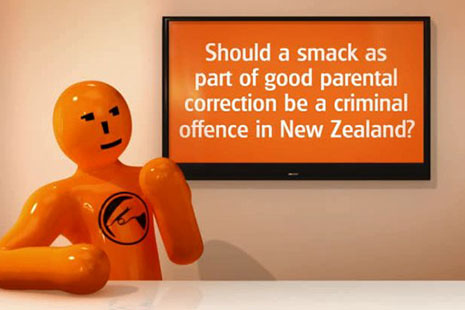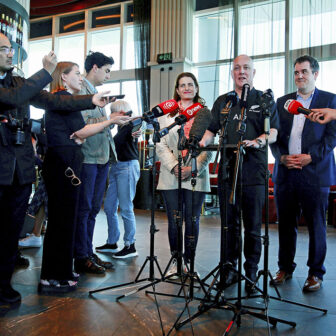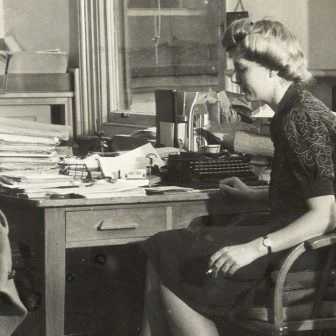SHOULD A SMACK as part of good parental correction be a criminal offence in New Zealand? This question – in exactly those words – is being asked of New Zealanders in a citizens-initiated referendum, or CIR, over the next few weeks. The phrasing is designed to suggest that the current law is turning good parents into criminals, which seems to be pushing many voters towards a “no” vote – or at least that’s what the proponents of the referendum are expecting. They’re probably right, but that doesn’t mean the law will change.
The stimulus for the referendum lies in legislation that was passed in 2007, removing the Crimes Act’s defence of “reasonable force” for parents disciplining their children. Since then the “anti-smacking” law has been as hotly debated in New Zealand as Christos Tsiolkas’s The Slap has been debated in Australia’s inner suburbs. Family First NZ, a conservative Christian group, circulated a petition which attracted more than 300,000 signatures – 10 per cent of the electoral roll, which is the trigger for a referendum.
So confusing is the wording of the referendum that many people are asking, “I support (or don’t support) the current law, do I vote Yes or No?” A question like “Is it okay to smack your kids?” would address the issue in a more straightforward way, but it wouldn’t necessarily suit the interests of the supporters of corporal punishment. It’s all in the wording.
Under CIR law the proponents of a referendum choose how the question will be put, and in this case Family First NZ obviously structured the question to elicit a No vote. The question must be checked by the clerk of parliament before the required signatures are collected. In the case of the current referendum, the proponents will be happy with their linguistic gymnastics; polls indicate that the No option will attract more than 80 per cent of the vote.
But they will be far less pleased by the fact that, in itself, the non-binding referendum will not make any difference to the law. Both prime minister John Key and opposition leader Phil Goff have stated they will not take any action to change the law, irrespective of the result. Key has called the question “weird” and both leaders have stated they will not be voting in the voluntary ballot.
With a $9 million price tag, the referendum is largely seen as a waste of time and money. Given the experiences since the introduction of CIR legislation in New Zealand in 1993, it is easy to see why this vote will be as spectacularly unproductive as previous CIRs. Three referendum questions have been put to the people, all with predictable results and all with a predictable lack of subsequent action by the government of the day.
In a stand-alone vote in 1995, 88 per cent of voters supported maintaining the existing number of fire-fighters. Turnout was a low 27 per cent and the government ignored the result. In 1999, two CIR questions were asked in conjunction with the general election, ensuring a far higher turnout of 83 per cent. One question sought harsher laws on crime – a greater emphasis on victims’ needs, tougher sentences, hard labour in prison and so on. Supported by almost 92 per cent of voters, the outcome was largely ignored. The other question called for a reduction in the number of MPs from 120 to ninety-nine, and gained the support of 81 per cent of those who voted (obviously MPs are not as important as fire-fighters!). The 120 MPs ignored the result (voters obviously got it wrong!).
With a fourth CIR also unlikely to bring about change, the usefulness of the CIR legislation needs to be questioned. It is generally accepted in academic circles that for CIRs to be authentic and effective, two criteria must be satisfied: referendums need to be genuinely initiated by “the people,” and the results need to be binding on government and parliament. New Zealand’s CIR laws pass the first test (albeit with a high threshold of signatures) but fail the second.
It is understandable that politicians are hesitant to give “the people” too much power, especially given experiences elsewhere in the world. At times in California for example, the state’s government has been unable to raise sufficient revenue to carry out its functions due to limitations dictated by CIR. Indeed, when the Bolger National government of the early 1990s was considering the introduction of CIR – as part of a package of reforms which included the move to New Zealand’s current mixed member proportional electoral system – concerns were raised within the party about the dangers of giving the people too much power. For that reason, the relatively high 10 per cent threshold was suggested (California’s is only 5 per cent), and the non-binding provision was included to guard against the capricious will of the people. As the National Party president of the day stated, “Initiative referendums should be used as a means of guiding and persuading an elected government.”
The experience of CIRs since 1995 indicates that the Nationals’ caution was well-founded. Following the 1995 fire-fighters’ CIR, the government said that “if people act irresponsibly and put up silly referendums” the Act would need to be changed. The National Party didn’t follow through with amendments, but in the debate about the current referendum it has been suggested that changes should be made to the law to ensure less confusing or emotive questions. This has the potential to politicise the clerk of parliament’s role, however, as well as revoking, or at best, watering down this mechanism for expressing the “people’s will.”
The “smacking referendum” will be the first to be conducted entirely by postal ballot, making it a great opportunity to gauge New Zealanders’ responsiveness to this type of voting. But that opportunity has been lost now that many, including the prime minister, are encouraging people not to vote. •
Electors receive their voting packs from Friday 31 July, and voting closes on 21 August. A preliminary result will be known later that day, with the final result to be announced on 25 August. Go to Elections NZ for details. More information on the arguments, go to Yes and No vote websites.




